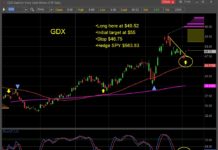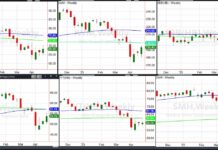The Wealth Effect – a term associated with bullish stock markets and/or real estate expansions driving asset gains, which in turn spurs on spending based on consumers’ perceived increase in their net worth.
No one gave more credence to this concept than Federal Reserve Chairman Alan Greenspan as he pointed to the Wealth Effect numerous times, especially during the late 1990’s economic expansion.
The Wealth Effect vs The Stealth Effect
Bear with me as I provide some backstory before introducing the new ‘Stealth Effect’. The wealth effect was in full blown melt-up mode and peaking around 1998 as stock markets appeared unstoppable. Folks, that was 17 years ago! A 50-year old investor feverishly socking money away in markets then dishing out double-digit annual returns is now 67 years old (let’s call him Doug). Retirements have occurred, people have gotten older, and demographics as well as priorities have changed. Given these transitions, it’s only natural to assume the Wealth Effect will experience its own transition, perhaps to this new Stealth Effect.
What exactly is the ‘Stealth Effect’? It is a phenomena wherein I believe certain consumer spending sectors may actually increase if the stock markets stagnate or even decline. Yes, a spike in spending based on market declines, and no, I do not have a rocker that I can fall off of. Stick with me on this. If the markets decline 10%, wealth effect logic tells us consumer spending will falter. I actually believe that for consumers with assets/capital, there exists massive potential for unprecedented spending as investors exit what appears to be non-producing assets and convert that cash into assets which produce a different type of return.
At the time the wealth effect was peaking, the goal/anxiety of the parties involved was primarily retirement. As assets rose, those anxieties became suppressed and therefore spending occurred – ala the wealth effect. Let’s revisit Doug, now 17 years wiser, and despite the financial services industry trying to dictate that outliving your assets should be his primary concern, I’d care to guess Doug’s anxieties revolve more around mortality, have I traveled enough, or have I experienced enough? If Doug’s assets stagnate or even decline, do you think Doug is going to “hang in there” holding equities or buy a couple of Harley Davidson’s so he and his wife can finally make that ride to Sturgis?
This ‘Stealth Effect’ could easily supplant the monumental generational transfer of assets we’ve heard coming down the tracks for the past umpteen years. What if a bulk of this transfer occurs to a wide swatch of companies ready to guide Doug on an African safari or host him and his grandkids on a Disney cruise? Consumer trends are already changing valuing experiences over more stuff. I’d argue that those with capital may drive a spending boom we’re not remotely ready for (hence, the ‘stealth’).
So what could be some of its side-effects? Here are a few to ponder on:
- If this ‘Stealth Effect’ is larger than anticipated, it may result in economic expansion far beyond what is being anticipated. Does this trap the Fed into finally rising rates? Would economists and strategists be even more confounded by growth while the middle-class remains under siege? Regardless its scope, it could result in boom times for those ready to take advantage.








